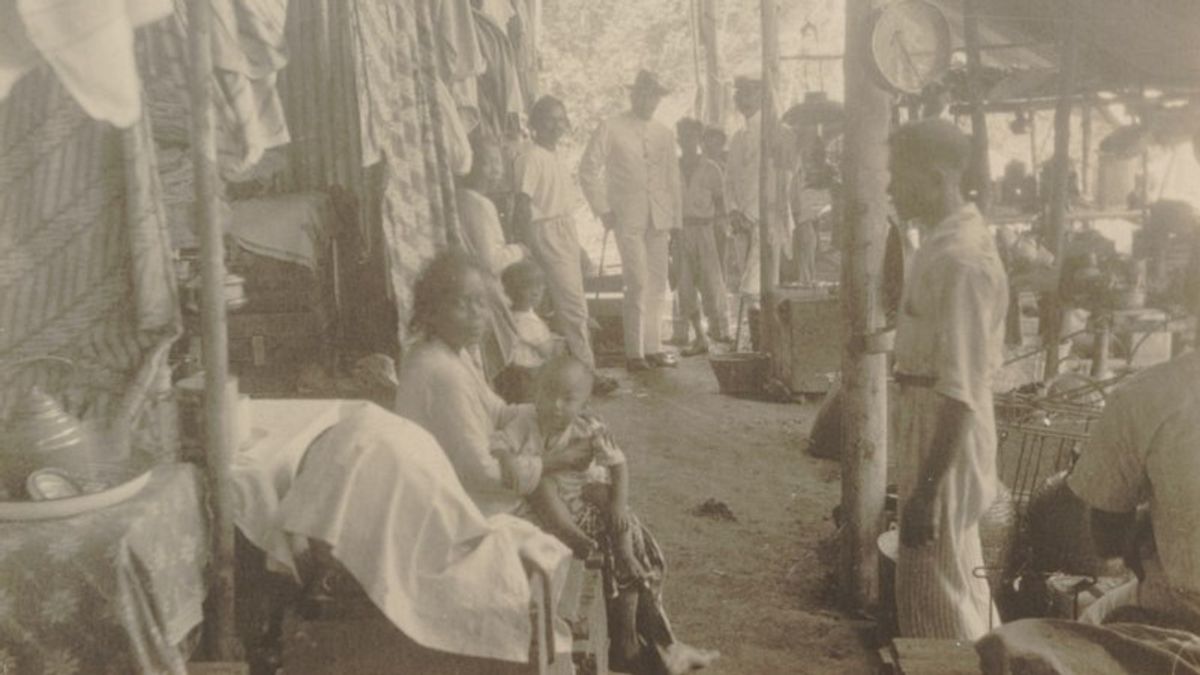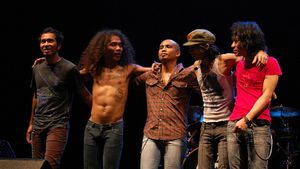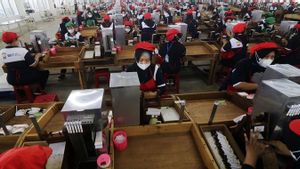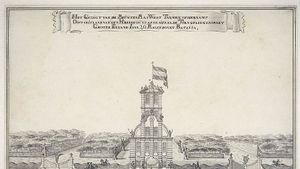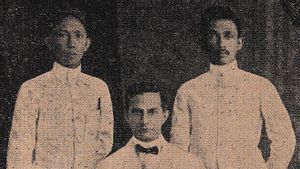JAKARTA History today, 93 years ago, July 22, 1930, a member of the Dutch East Indies Council, WP Hillen wrote a report to the Governor General of the Dutch East Indies, Andries Corneleies Dirk de Graeff. He mentioned that the prisoners who were exiled to the interniran camp, Boven Digoel, Papua did not only come from sympathizers of the Indonesian Communist Party (PKI).
Many prisoners do not know anything about communism. Previously, the PKI quickly won the hearts of all natives. This step was because the PKI dared to echo resistance to Dutch colonialism.
Communism was once used as a tool of resistance against the Dutch colonialists. The narrative was shown by a Dutch communist, Henk Sneevliet. He became the main character who introduced the understanding of marxisms and communisms in the archipelago.
He also later founded Indische Social Democracy Vereniging (ISDV) in 1914. The association was deliberately perpetuated so that the natives had a forum to sound resistance to the invaders.
The sympathy of national figures has also increased. Many of the Sarekat Islam (SI) figures chose to join forces. Semaun, especially. Semaoen's presence made SSDV change its role as a Communist Union in the Indies or which was later widely known by the Indonesian Communist Party (PKI) in 1920.
The presence of the PKI was also greeted with a commotion. Many Bumiputras have great sympathy for the struggle of the PKI. The greatness of the PKI then made a series of leaders confident. Moreover, the Dutch began to consider the PKI a dangerous party.
The PKI has begun to perpetuate the narrative of the struggle for power through rebellion. A series of PKI members in the archipelago were then asked to raise funds to buy all kinds of weapons. The goal is that the rebellion can be successful.
Far from being burned. The rebellion that was perpetuated in 1926-1927 ended in failure. The PKI leadership is considered not to be compact in perpetuating rebellion in various regions. The Dutch also moved quickly to arrest all PKI sympathizers.
Some were sentenced to death, some were exiled to the Boven Digoel interninan camp. While many PKI leaders fled abroad.
Two leaders who are also important commissioners of the Kominter, Musso and Semaun, were among those who fled in 1926, and then settled in Moscow. Their existence there plays an important role as resource persons as well as basic actors who direct Indonesian studies there.
The two fled Indonesia after the failure of the PKI against the Dutch in 1926. In fact, before the uprising, Semaun, Musso, and Alimin had contacted Joseph Stalin asking for instructions whether or not they should fight against the Dutch in Java and Sumatra in 1926-1927," explained Tomi Lembang in the book Sahabat Lama, New Era: 60 Years of Putting Up Indonesian-Russia Relations (2010).
The Dutch began to learn from the 1926-1927 PKI rebellion. The Dutch did not want communists to return to the archipelago. The figures are considered to have been thrown into Boven Digoel. The owner of the power then believed that the entire Boven Digoel was inhabited by PKI sympathizers.
SEE ALSO:
However, this narrative was denied by a member of the Dutch East Indies Council, WP Hillen. He who reported to the Governor General, Andries Corneleies Dirk de Graeff, considered that the existing narrative was not appropriate on July 22, 1930. Detainees who were exiled in Boven Digoel did not only come from PKI sympathizers. He said that many of the prisoners did not understand the movement of the PKI.
At first WP Hillen thought that all political prisoners in Boven Digoel were part of the PKI and its mass organizations. However, after Hillen interrogated the prisoners, he argued that many prisoners in the Red Land did not know and did not care what communism was.
"They only have unclear knowledge about the existence of the PKI, the purpose of the PKI, and the meaning of the PKI's resistance action in 1927-1927, and do not understand what the PKI wants. Based on the results of its interrogation of the prisoners, WP Hillen concluded that 412 of the 610 people being interrogated could be given their freedom again, "said Soewarsono in the book Nationalist Steps in Manokwari and Boven Digoel (2013).
The English, Chinese, Japanese, Arabic, and French versions are automatically generated by the AI. So there may still be inaccuracies in translating, please always see Indonesian as our main language. (system supported by DigitalSiber.id)
